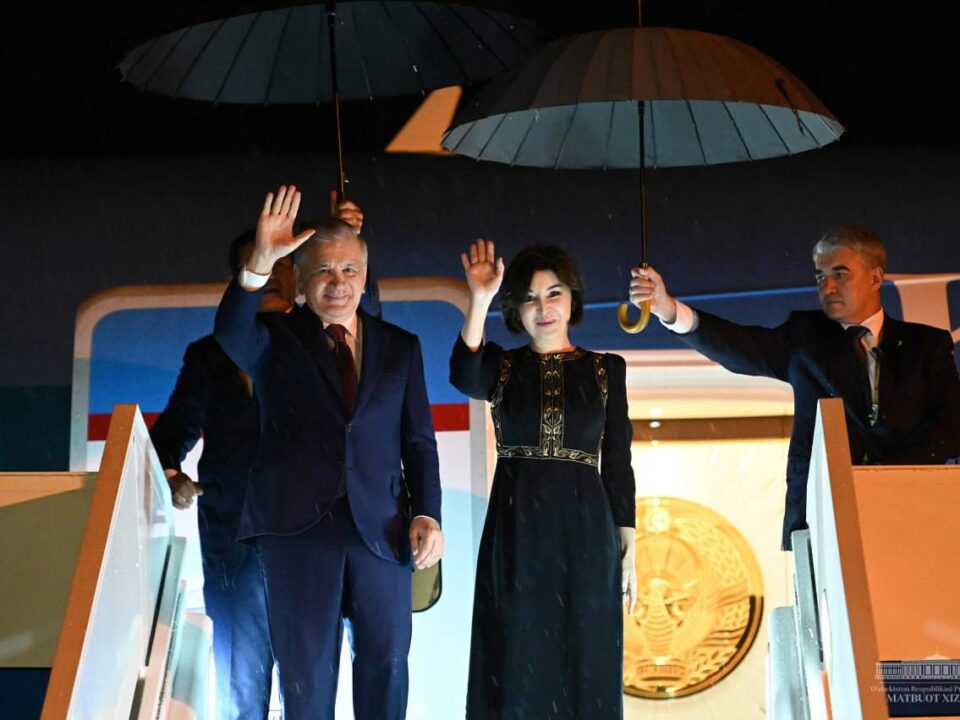There is nothing better than celebrating your birthday where you were born.
On September 23, a well-known writer, master of the short story, Lidoliya Nikitina, whose works have been translated into 17 languages, including Uzbek, celebrated her 75th anniversary and did it in Tashkent, where she was born, but hasn’t lived here for 30 years.
Explaining why Tashkent became the venue for the birthday celebration, Lidoliya Nikitina said: “This is a tribute to my beloved city. Here, in Tashkent, people are different: they are open, easy to get in touch, sincerely rejoice in your success and are willing to accept the result of your work. I remember, it happened, after the release of a new book, while you walk through the corridors of the Ghafur Ghulom Publishing House, with ten copies of book in the hands, none was left, because everyone stopped you with the words: “It is great that you released a new book, grant me one, please.” Little has changed for three decades. Arriving in Tashkent, the first thing I did was go to the editorial office of the ‘Star of the East’ magazine, which I had not visited for more than 30 years. Less than half an hour of conversation with the editor I received the offer to publish a selection of works… I called the chair of the Russian Literature Council of the Union of Writers of Uzbekistan, Vladimir Vasiliev, and received an invitation to the next meeting of the Council.”
What do you think of modern Tashkent?
“A wonderful, very warm and, as always, hospitable. It inspires for creativity. The city has faced tremendous changes, it turned more charming. A trip out of town to rest in Chimgan amazed me hugely shocked. I saw many new beautiful buildings. Grand shopping malls and supermarkets: spacious, and all is in abundance. But most of all I was surprised by the streets of Tashkent, crowded with cars. Especially, by the fact, that the most of those cars are produced in Uzbekistan. But there are moments that evoke sadness. They are associated with memories of the green and cozy corners of Tashkent, which did not remain due to the reconstruction and improvement of the city.”
You are known as a master of short story. Do you think what did contribute to the formation in you of this direction? East, Tashkent?
“I think it’s from nature. I began writing in this genre before I learned that this was called a short story. At that time I just created, without attaching much importance in the theoretical classification of my works.
I am grateful to my teacher, the deputy chief of the ‘Star of the East’ editor Alfred Bender. I remember my first participation in a meeting of the youth association of writers at the magazine: then my colleagues criticized my works. I thought that the stories would not come out. But Bender then said: “Despite the criticism, some short stories of Lidoliya we still publish.” Later I brought him other works as well, but I heard from him these words: “Lidoliya you bring me short stories, fairy tales and sketches. Let’s agree that as long as you do not attain perfection in the short story genre, you will not write in other genres.”
And then I began to publish my works in such popular magazines of that time, as ‘Lady-Worker’, ‘Lady-Peasant’, ‘Reporter’… Now do not even remember all of them. My works were translated into Uzbek language. The translated stories were published not only in the major print media, but also in regional periodicals. I still have all the clippings preserved. The ‘Soviet Woman’ magazine gave me much, of course, which was published in 17 languages - thanks to this magazine the foreign audience got acquainted with my works.
You said that Tashkent inspires you. What place does take the capital and its residents in your creativity?
“I have plenty of materials for my memoirs. I keep a diary since my childhood, which has a lot of memories worthy of publicity. Today, their publication will sound as a recollection of Tashkent and its residents, the events in the life of the city. In particular, a lot of memories are about the devastating earthquake of April, 1966, and this year it has turned 50 years.”
How soon will we be able to read about it?
“It is hard to promise something, because all books I publish at my own expense. After my husband’s death I set a goal: one year – one book. I still not fail to implement this plan. Unfortunately, the publication of each book depends on the availability of funds. Content is the state of the soul, the desire to prepare the work for publication.
Incidentally, the Uzbekistan residents can get acquainted with my latest works in upcoming issues of the ‘Star of the East’ magazine. The magazine’s office took a selection of my recent works.”


























